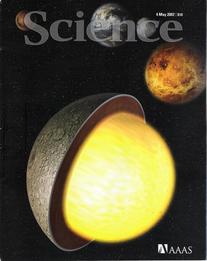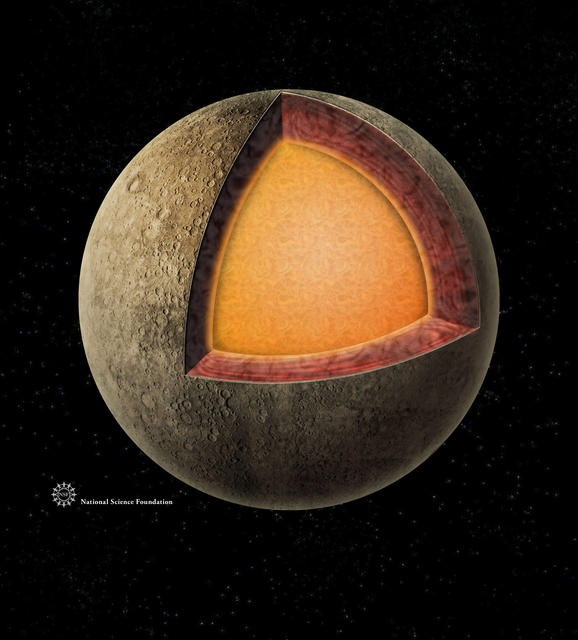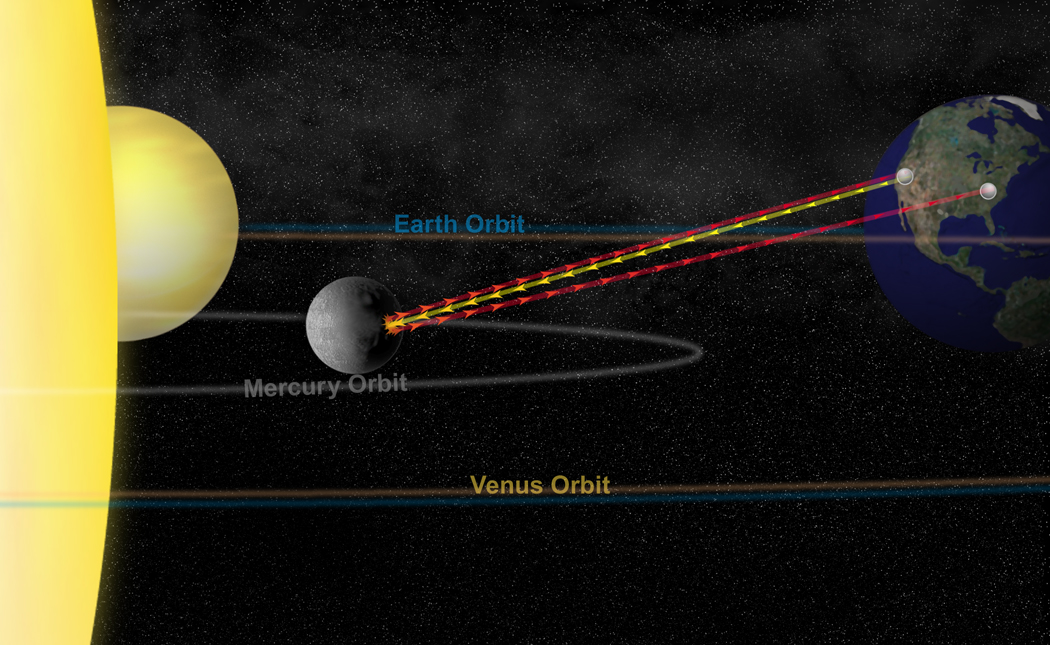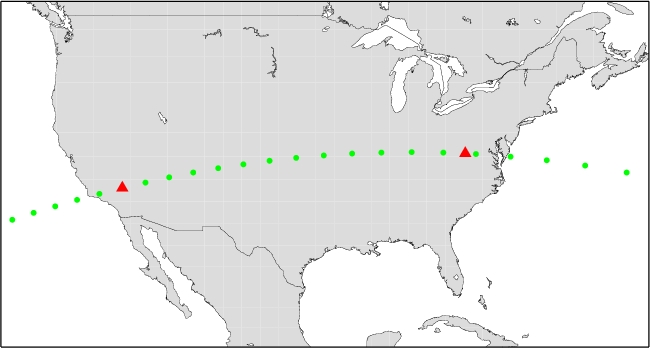 This page collects links and illustrations related to our paper:
This page collects links and illustrations related to our paper:
J. L. Margot, S. J. Peale, R. F. Jurgens, M. A. Slade, I. V. Holin.
Large longitude libration of Mercury reveals a molten core.
Science, 316, 710-714, 2007.
Cornell Chronicle story
Reuters story
AP story
Illustrations:
|
Credit line: Nicolle Rager Fuller, National Science Foundation.
Caption: Diagram showing the interior structure of Mercury. The
metallic core extends from the center to a large fraction of the
planetary radius. Radar observations show that the core or outer core
is molten.
Click on the image for a high resolution version.
|

|
|
Credit line: Bill Saxton, NRAO/AUI/NSF
Caption: Artistic rendering of the observational geometry. A radar
signal (yellow) is transmitted from the Goldstone antenna in
California. Radar echoes (red) are received at the Goldstone antenna
and at the Robert C. Byrd telescope in Green Bank, West Virginia.
|

|
|
Credit line: Jean-Luc Margot, Cornell University
Caption: Illustration of the trajectory (green circles, one second
time interval) of radar speckles tied to the rotation of
Mercury. Observers measured how long it takes for the pattern
to travel between two antennas (red triangles) to measure the
rotation rate of Mercury.
|

|
 This page collects links and illustrations related to our paper:
This page collects links and illustrations related to our paper:  This page collects links and illustrations related to our paper:
This page collects links and illustrations related to our paper: